BMW X1 vs Renault Rafale - Differences and prices compared
Compare performance (326 HP vs 300 HP), boot space and price (38200 £ vs 37500 £ ) at a glance. Find out which car is the better choice for you – BMW X1 or Renault Rafale?
Costs and Efficiency:
Looking at overall running costs, both models reveal some interesting differences in everyday economy.
Renault Rafale has a minimal advantage in terms of price – it starts at 37500 £ , while the BMW X1 costs 38200 £ . That’s a price difference of around 686 £.
Fuel consumption also shows a difference: Renault Rafale manages with 0.60 L and is therefore convincingly more efficient than the BMW X1 with 2.50 L. The difference is about 1.90 L per 100 km.
As for electric range, the Renault Rafale performs slightly better – achieving up to 97 km, about 16 km more than the BMW X1.
Engine and Performance:
Under the bonnet, it becomes clear which model is tuned for sportiness and which one takes the lead when you hit the accelerator.
When it comes to engine power, the BMW X1 has a barely noticeable edge – offering 326 HP compared to 300 HP. That’s roughly 26 HP more horsepower.
In acceleration from 0 to 100 km/h, the BMW X1 is somewhat quicker – completing the sprint in 5.40 s, while the Renault Rafale takes 6.40 s. That’s about 1 s faster.
In terms of top speed, the BMW X1 performs evident better – reaching 233 km/h, while the Renault Rafale tops out at 180 km/h. The difference is around 53 km/h.
Space and Everyday Use:
Cabin size, boot volume and payload all play a role in everyday practicality. Here, comfort and flexibility make the difference.
Both vehicles offer seating for 5 people.
In curb weight, BMW X1 is slightly lighter – 1575 kg compared to 1734 kg. The difference is around 159 kg.
In terms of boot space, the Renault Rafale offers slightly more room – 627 L compared to 540 L. That’s a difference of about 87 L.
In maximum load capacity, the Renault Rafale performs a bit better – up to 1910 L, which is about 365 L more than the BMW X1.
When it comes to payload, BMW X1 to a small extent takes the win – 500 kg compared to 444 kg. That’s a difference of about 56 kg.
Who wins the race?
The Renault Rafale proves to be dominates this comparison and therefore becomes our DriveDuel Champion!
Renault Rafale is the better all-rounder in this comparison.
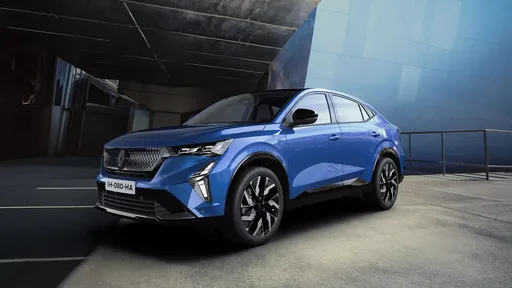
Renault Rafale
Costs and Consumption
View detailed analysis
Engine and Performance
View detailed analysis
Dimensions and Body
View detailed analysis
BMW X1
The BMW X1 brings a premium feel to compact crossover life, wrapping practical space and agile handling into a tidy, upscale package. It’s ideal for buyers who want BMW driving dynamics without the bulk, offering everyday comfort and a few clever tricks to keep the commute interesting.
details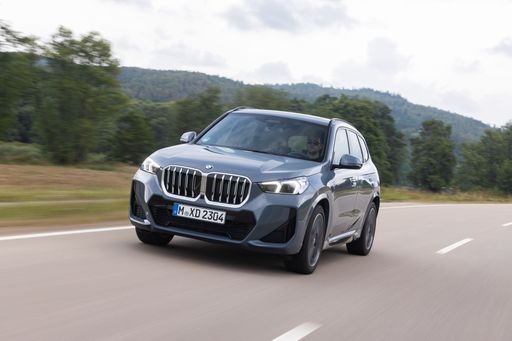
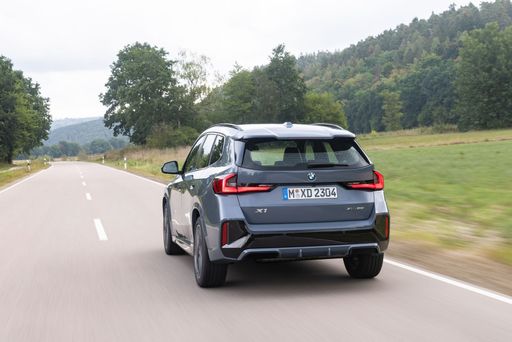
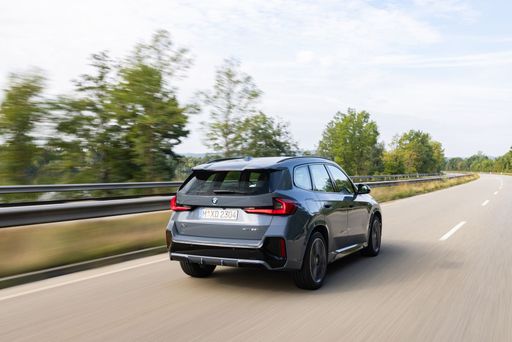
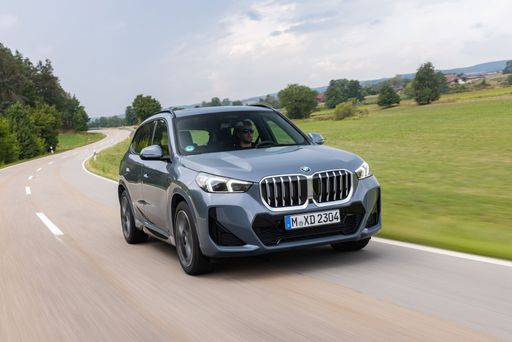
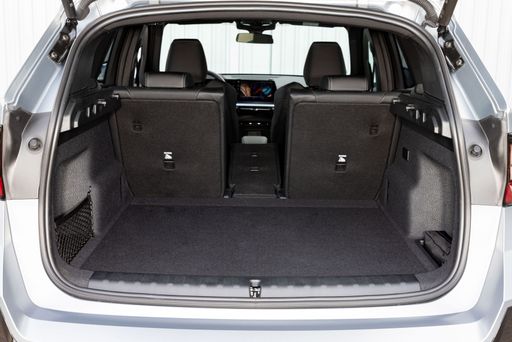
Renault Rafale
The Renault Rafale dresses bold coupé-inspired lines around a practical crossover body, turning heads without trying too hard. Inside it serves up a comfortable, well-equipped cabin and engaging driving manners, making it a clever choice for buyers who want a bit of panache with their daily commute.
details
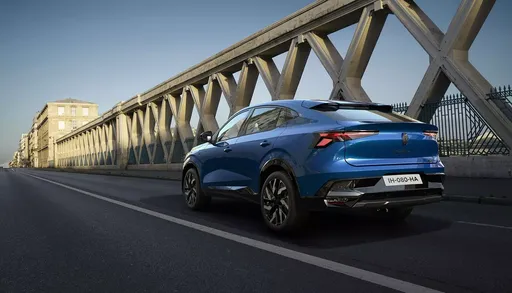
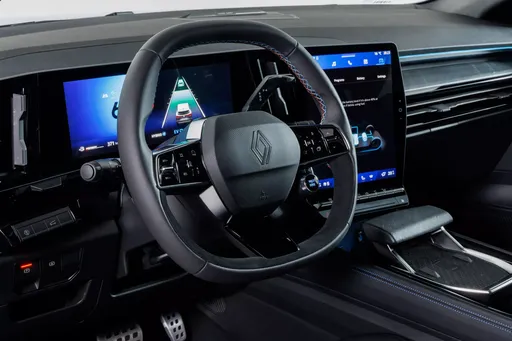
Costs and Consumption |
|
|---|---|
|
Price
38200 - 55500 £
|
Price
37500 - 49500 £
|
|
Consumption L/100km
2.5 - 7.7 L
|
Consumption L/100km
0.6 - 5 L
|
|
Consumption kWh/100km
-
|
Consumption kWh/100km
-
|
|
Electric Range
81 km
|
Electric Range
97 km
|
|
Battery Capacity
14.20 kWh
|
Battery Capacity
-
|
|
co2
57 - 175 g/km
|
co2
14 - 109 g/km
|
|
Fuel tank capacity
47 - 54 L
|
Fuel tank capacity
55 L
|
Dimensions and Body |
|
|---|---|
|
Body Type
SUV
|
Body Type
SUV
|
|
Seats
5
|
Seats
5
|
|
Doors
5
|
Doors
5
|
|
Curb weight
1575 - 1935 kg
|
Curb weight
1734 - 2025 kg
|
|
Trunk capacity
490 - 540 L
|
Trunk capacity
539 - 627 L
|
|
Length
4500 mm
|
Length
4710 mm
|
|
Width
1845 mm
|
Width
1886 mm
|
|
Height
1630 - 1642 mm
|
Height
1613 mm
|
|
Max trunk capacity
1495 - 1545 L
|
Max trunk capacity
1826 - 1910 L
|
|
Payload
490 - 500 kg
|
Payload
415 - 444 kg
|
Engine and Performance |
|
|---|---|
|
Engine Type
Diesel MHEV, Petrol MHEV, Petrol, Diesel, Plugin Hybrid
|
Engine Type
Plugin Hybrid, Full Hybrid
|
|
Transmission
Automatic
|
Transmission
Automatic
|
|
Transmission Detail
Dual-Clutch Automatic
|
Transmission Detail
Automatic Gearbox
|
|
Drive Type
Front-Wheel Drive, All-Wheel Drive
|
Drive Type
All-Wheel Drive, Front-Wheel Drive
|
|
Power HP
136 - 326 HP
|
Power HP
200 - 300 HP
|
|
Acceleration 0-100km/h
5.4 - 9.2 s
|
Acceleration 0-100km/h
6.4 - 8.9 s
|
|
Max Speed
190 - 233 km/h
|
Max Speed
180 km/h
|
|
Torque
230 - 477 Nm
|
Torque
-
|
|
Number of Cylinders
3 - 4
|
Number of Cylinders
3
|
|
Power kW
100 - 240 kW
|
Power kW
147 - 221 kW
|
|
Engine capacity
1499 - 1998 cm3
|
Engine capacity
1199 cm3
|
General |
|
|---|---|
|
Model Year
2024 - 2025
|
Model Year
2024 - 2025
|
|
CO2 Efficiency Class
D, E, F, B
|
CO2 Efficiency Class
B, C
|
|
Brand
BMW
|
Brand
Renault
|
Is the BMW X1 offered with different drivetrains?
The BMW X1 is offered with Front-Wheel Drive or All-Wheel Drive.




